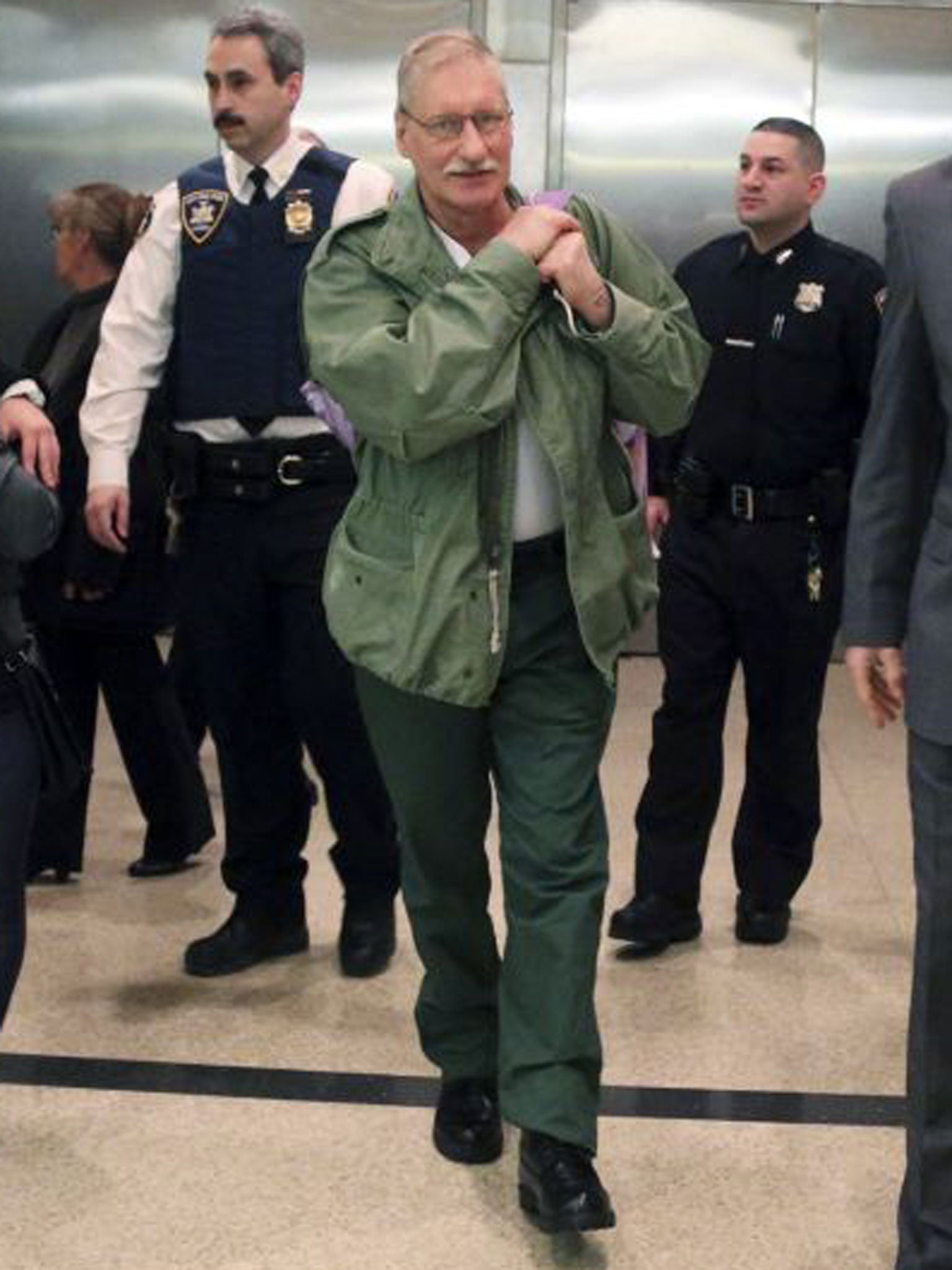Did the NYPD's star homicide detective rig evidence to secure dozens of convictions?
Louis Scarcella’s investigations are being re-examined after witnesses have recanted

Your support helps us to tell the story
From reproductive rights to climate change to Big Tech, The Independent is on the ground when the story is developing. Whether it's investigating the financials of Elon Musk's pro-Trump PAC or producing our latest documentary, 'The A Word', which shines a light on the American women fighting for reproductive rights, we know how important it is to parse out the facts from the messaging.
At such a critical moment in US history, we need reporters on the ground. Your donation allows us to keep sending journalists to speak to both sides of the story.
The Independent is trusted by Americans across the entire political spectrum. And unlike many other quality news outlets, we choose not to lock Americans out of our reporting and analysis with paywalls. We believe quality journalism should be available to everyone, paid for by those who can afford it.
Your support makes all the difference.David Ranta spent 23 years in prison for a murder he did not commit.
In 1991 Mr Ranta, who is now 58, was convicted of shooting dead a rabbi, Chaskel Werzberger, during a botched jewellery robbery in Brooklyn, New York. He was freed in March this year, following an investigation by the Brooklyn District Attorney’s Conviction Integrity Unit, which spoke again to a witness who had claimed to have seen Mr Ranta near the murder scene. Menachem Lieberman, who was 13 at the time of the murder, recanted his testimony, saying he had been coached to pick Mr Ranta from a police line-up by a homicide detective named Louis Scarcella.
With questions now being asked about the legitimacy of several more of Mr Scarcella’s investigations, the Brooklyn District Attorney (DA) announced last week that its Conviction Integrity Unit would re-examine every one of the celebrated NYPD detective’s murder cases that resulted in a conviction. Mr Scarcella, 61, denies ever having used unethical tactics to secure a conviction, but Mr Ranta’s trial lawyer has described him as a “cowboy” who “did a lot of bad things”.
Mr Scarcella joined the Brooklyn North homicide squad in 1987, in the midst of New York’s crack epidemic, at a time when the city saw up to six murders a day. As the lead officer on an estimated 175 homicide investigations, he earned a reputation for solving splashy cases such as the stabbing death of a dance choreographer and the murder of a subway worker, who died after two teenagers torched a ticket booth. Mr Scarcella retired from the force in 1999, and told The New York Times this week that he was shocked by the DA’s inquiry. “Let them look at my convictions,” he said. “I will help them if they need me. I don’t know what else to say. I expect he will find nothing.”
The probe was spurred partly by a Times investigation of several Scarcella cases, which found that police had allowed convicted criminals to leave jail, smoke crack and visit prostitutes if they agreed to incriminate Mr Ranta. In another instance, a single drug-addicted prostitute acted as a crucial eyewitness to a number of homicides to which Mr Scarcella was assigned. Teresa Gomez, who later died in a hit-and-run accident, even testified against the same man twice, for two separate murders. (He was convicted of the second.)
Derrick Hamilton was convicted of murder in the same year as Ranta. But two years ago he was released, when the sole witness in his case withdrew her testimony, and more than 10 others came forward to support his alibi. Mr Hamilton, now 47, is attempting to prove he was set-up by Mr Scarcella, whom a court affidavit accuses of coercing the witness.
Martin Marshak, a defence lawyer who represented a number of people arrested by Mr Scarcella, said, “I don’t want to say he manufactured witnesses, but he got people to say what he wanted them to say.” Accused of delivering false confessions, Mr Scarcella agreed he had a gift for obtaining incriminating statements from difficult witnesses, but always by entirely legitimate means. “You’re right,” he said. “There were cases where suspects talked to one detective and they got nothing, and they called me and I got statements. A lot of guys don’t know how to talk to people.”
Join our commenting forum
Join thought-provoking conversations, follow other Independent readers and see their replies
Comments